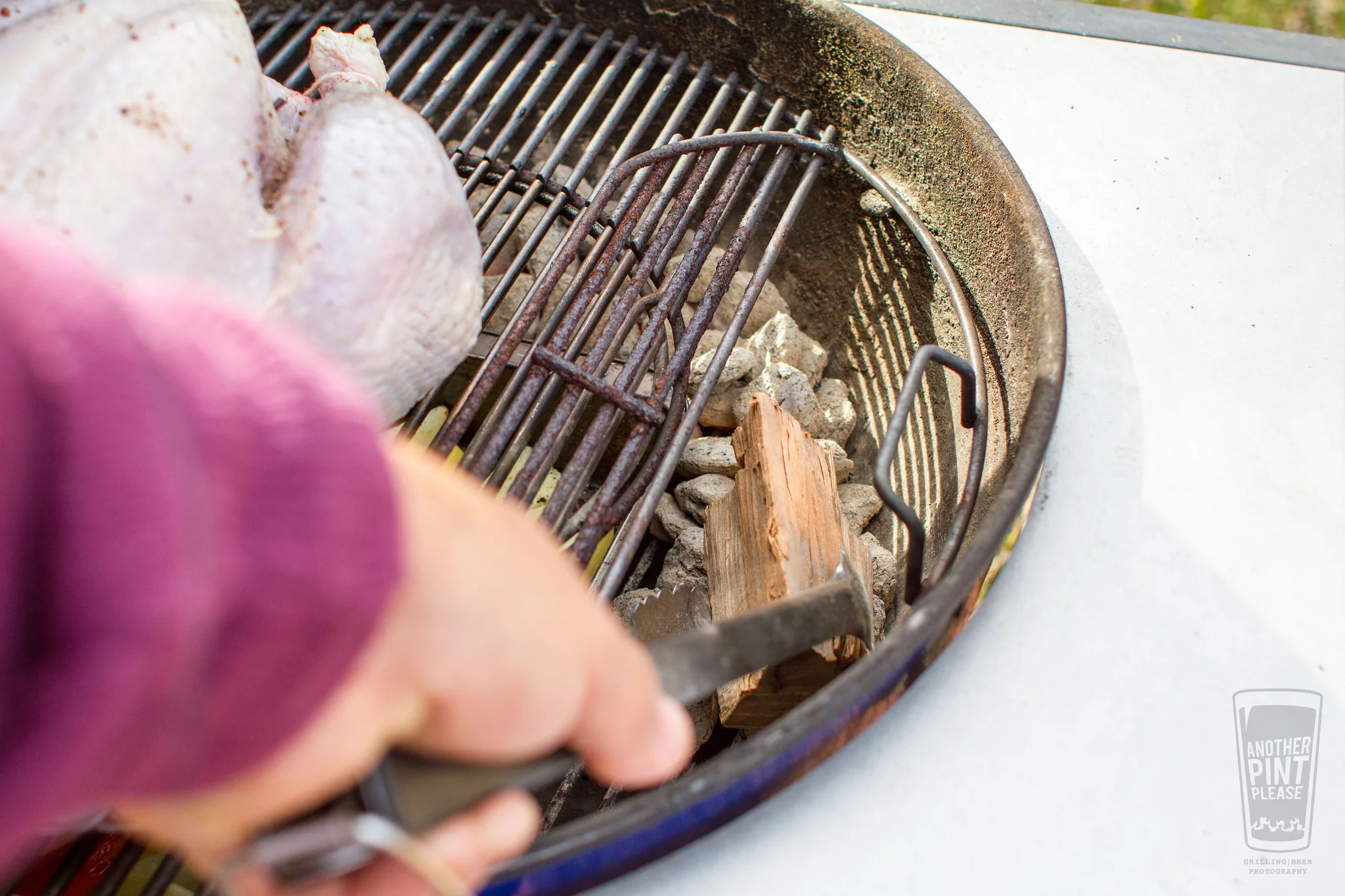4 Tips for Great Grilled Turkey
Thanksgiving is right around the corner and in anticipation, grills everywhere are holding their collective breath. We all love to grill, but our true backyard moments are when we measure the food hitting the grates in pounds, not numbers. Turkey, and the celebration of Thanksgiving, fit squarely into these moments.
It's not every weekend we drop 20 pounds of meat on the grill to feed our families and friends, which is why I want to share with you my tips on making your grilled turkey, great!
Brine
I've spent years utilizing a wet brine, but in the end, I've found a dry brine wins out. While there is a lot of science published on the pros and cons, the biggest reason for me is the simplicity of it. Dropping a 20-pound turkey into a 5% salt water solution is a refrigeration challenge.
It's lesser so for a spatchcocked turkey on a half-sheet pan.
The ever trusted J. Kenji López-Alt suggests a brine isn't even necessary, but rather a safeguard to prevent overcooking.
Evenly salt the turkey, in and out, and then refrigerate undercovered for 24 hours. The salt will help the turkey retain moisture, protect against overcooking, and set the groundwork for an amazingly crispy skin. Do it.
Rotisserie
It is no secret I'm a huge fan of spinning poultry. A turkey, while larger than a chicken, or a rack of ribs, is an easy inclusion. While limited to the 20 lb weight limit of the Weber rotisserie spit, I may, or may not, have pushed its limits a few pounds more. While I can spin on either gas or charcoal, the kettle rotisserie ring provides a lot more flexibility with size. If planning on gas, just test clearance issues ahead of times.
I almost forgot, so why rotisserie? For me, it's three reasons. First, the gentle application of heat. With coals off to one side, the spinning motion almost massage heat into the meat. It's magical. Second, the self-basting action of the rotation. I've never had a dry bird. The process is tasty AND forgiving when time gets tight. Finally, the rotisserie is great for applying a glaze. Thanks to the spin, the entire turkey is accessible to the basting brush. Flavor is literally, everywhere.
Here's my Weber post on how to rotisserie a turkey.
Spatchcock
Second to the rotisserie is the spatchcock. Schoolyard giggles aside, and yes, there are always giggles, the spatchcock is the best method to speed up your cook time and promote more even cooking.
It sounds like work, but it's not. Remove the backbone of the turkey, snap the breast bone, and press the turkey flat. If you've watched a rerun of ER, this is simple work.
By increasing the surface area of the turkey exposed to heat, it comes to temperature faster and absorbs more flavor from the grill. Yes, it doesn't look like the traditional turkey, but if it's carved ahead of time, the only question your guests will ask is why does it taste so good?
Here's my Weber post on how to grill a spatchcocked turkey.
Smoke
The best-cooked turkeys are a wonderful mahogany, thanks, primarily to the Maillard reaction. However, I find a little bit of smoke, in the form of wood chunks, goes a long way. I like to add one or two chunks of cherry wood to my turkeys, no matter the process. The small amount of smoldering wood adds just the right amount of smokiness to the turkey, as well as a wonderful dark hue to its crispy skin.
A little goes a long way, so be careful on not only the species of wood but the quantity. Think candle smoke, not house fire smoke. Oh, and chunks are the way to make it happen. Chips are great in some circumstances, but for a long extended cook, chunks are the slow release bombs up for the job.
I've been grilling turkeys since my Performer was red and I had hair. Seeing my Performer is now blue and I'm well, bald, it's been awhile.
That picture still gives me shivers!
With that said, these are tips I find work for me. In the end, it's all about what you enjoy and your guests devour. No matter if your turkey is spun, stuffed, or its backbone is ripped out, I hope your turkey is not only fabulous, but memorable. The food is always important, but it's always second to the moment with family and friends.
Cheers!
NOTE: The Weber links are compensated work. The 1999 photo of me is just plain embarassing.










